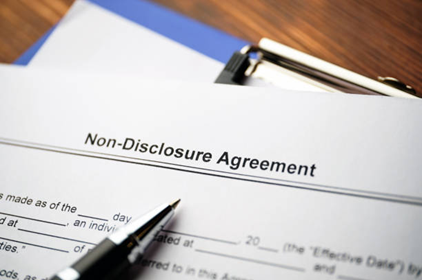- Hyderally & Associates P.C | Employment Lawyers NJ, NY
- (973) 509-8500
- tyh@employmentlit.com
New Yorkers — You have Three Years to File Discrimination Claims Before the Commission!!

PWFA Grants Pregnant Workers Stronger Workplace Protections
February 5, 2024
New York Restricts Employers’ Access to Employees’ Social Media Accounts
February 8, 2024By: Ty Hyderally, Esq. and Lorena Meza
Governor Kathy Hochul of New York, in a consequential development for workplace justice and employee rights, signed Senate Bill S.3255 into law on November 17, 2023. This is an essential amendment to Section 297-5 of the New York Executive Law that affects the statute of limitations for administrative complaints alleging unlawful discrimination under the New York State Human Rights Law. It takes effect on February 15, 2024, bringing about this transformational change.
Before this amendment, the New York State Human Rights Law established a one-year time frame for all administrative claims of discrimination apart from sexual harassment cases. Sexual harassment claims were already subject to a three-year statute of limitations. This gap generated concerns about fairness and eventually necessitated the change that has occurred.
The modified regulation takes effect on the 15th day of February 2024, and expands the coverage to all administrative discrimination claims. Upon the enactment, the period for reporting all administrative claims of discrimination, including but not limited to, claims regarding race, color, creed, national origin, citizenship or immigration status, age, sexual orientation, disability, military status and other protected classes has been extended to three years rather than one year (Jaus, 2023). The extension also included complaints about illegal retaliation under the New York State Human Rights Law.
The change acknowledges that there are sometimes intricate issues involved in discrimination claims, and that victims need to be allowed more time to complain. The administrative claims process will, therefore, have a longer statute of limitation period from February 15th, 2024, bringing it closer in line with the three-year time frame provided under the NYS Human Rights Law for bringing discrimination suits before a court. The amendment harmonizes court and administrative proceedings by making the statute of limitations for filing a claim in court three years under the NYS Human Rights Law. This important harmony maintains uniformity and justice during the legal process for victims of discrimination, simplifying access to justice.
The impact must be considered to fully appreciate the weight or significance of this shift. Anyone who believes that they have suffered from an act of illegal discrimination in violation of the NYSHRL must now file a complaint with the New York State Division of Human Rights within three years after the alleged unlawful act. The New York State Division of Human Rights serves as an administrative agency that investigates and enforces the state’s Human Rights Law, thus playing a crucial part in ensuring fairness.
The motive behind the extension of the statute of limitations is to cater to the problems victims face while collecting evidence, going through bureaucracy, and seeking justice. With a larger timeframe given, this bill recognizes the complexities that surround cases of discrimination and gives victims a more adequate time to report such claims. In addition, this reform reflects a collective acknowledgement that the fight against discrimination requires legislative support to ensure a fair and just society.
En nuestra firma hablamos español. This blog is for informational purposes only. It does not constitute legal advice and may not reasonably be relied upon as such. If you face a legal issue, you should consult a qualified attorney for independent legal advice with regard to your particular set of facts. This blog may constitute attorney advertising. This blog is not intended to communicate with anyone in a state or other jurisdiction where such a blog may fail to comply with all laws and ethical rules of that state of jurisdiction.


